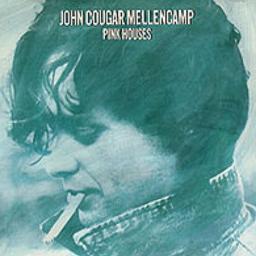

They want to connect with all your yesterdays. Scholz notwithstanding, the whole thing is about politicians reaching out with plaintive palms to create more than a feeling about their candidacies. It does seem odd to me that they are willingly and, in some cases, deceptively connecting themselves with some form of pop culture.” but somehow you expect these people to be a cut above all of that. “I don’t want to use the term unpresidential. “Huckabee was at the extreme opposite of everything I stood for or believed in,” Scholz says. The response from Scholz: Cease and desist. The man behind the band Boston spoke up sharply this year when Republican Mike Huckabee used the group’s 1970s anthem “More Than a Feeling” during at least one campaign event. Not if they’re Tom Scholz’s songs you don’t. Some work, some don’t, and then you move on.” “The good old 20th-century model of everyone feeding from the same cultural trough, that doesn’t work in 2008,” says Robert Thompson, director of the Bleier Center for Television and Popular Culture at Syracuse University. It’s about comfort and familiarity, about whispering to a voter, “Hey, you’ve had life experiences while listening to this song, and I’m associating myself with it, so I must understand your daily trials, right?”īut finding common ground is growing more difficult. It’s not that different from, say, a beer ad. The key word is “essence” - particularly the essence of the American working class, whose approval and credibility candidates covet.Ĭlinton, for example: Her quest to appeal to her base can only be strengthened if it perceives her as an “American girl, raised on promises” who “used to daydream in a small town.” (No matter that “American Girl” also contains the lyrics “Take it easy, baby, make it last all night.”) And if you can choose the right song that can capture a bit of your message and a bit of your essence, you’re going to choose it.”

“These songs are a quick and easy substitute to establish a connection between candidates and voters,” says Sean Wilentz, a leading presidential historian and scholar of American musical traditions. Candidates and handlers are fumbling their way through the untamed frontier territory of iPod Nation, a confusing geography where remix culture, sampling, shuffles and playlists rule the day and context is often absent. Hillary Clinton has used pieces of Tom Petty’s “American Girl” and Mellencamp’s “Small Town” to convey the basic imagery of their titles at a recent rally in a Pittsburgh suburb, her husband came on stage to the Police’s “Every Little Thing She Does Is Magic.” What the other lyrics might be didn’t much matter. Often the songs are played in fragments as attempts to capture a mood rather than convey a message. His son’s re-election theme in 2004, “Still the One,” seems nice until you hear the verse, “sometimes I never want to see you again.” Same with one of Barack Obama’s 2008 choices, U2’s “City of Blinding Lights,” which features this line: “The more you see, the less you know, the less you find out as you go.” Bush’s 1988 co-opting of Bobby McFerrin’s ironic smile music - “Don’t Worry, Be Happy” - was about as astute as a helmeted Michael Dukakis poking his head out of a tank. We’ve seen how that turns out: Shouldn’t presidential hopefuls bother to get a culture maven to idiot-proof song choices - or, at the least, print out a lyric sheet? Kennedy’s time - songs crafted expressly for the candidates, among them “Tippecanoe and Tyler, Too,” “Lincoln and Liberty” and the mercifully obscure “Get on a Raft with Taft.” These days, the zeitgeist dictates that candidates invoke existing tunes.

It’s as if we’re taking snapshots,” says Oscar Brand, an 88-year-old folk musician and radio host who recorded an album of campaign music ranging from the eras of George Washington to Bill Clinton.īrand, though, focused mostly on what prevailed until roughly John F. “Interesting thing about campaign songs: They mirror the life of America.


 0 kommentar(er)
0 kommentar(er)
